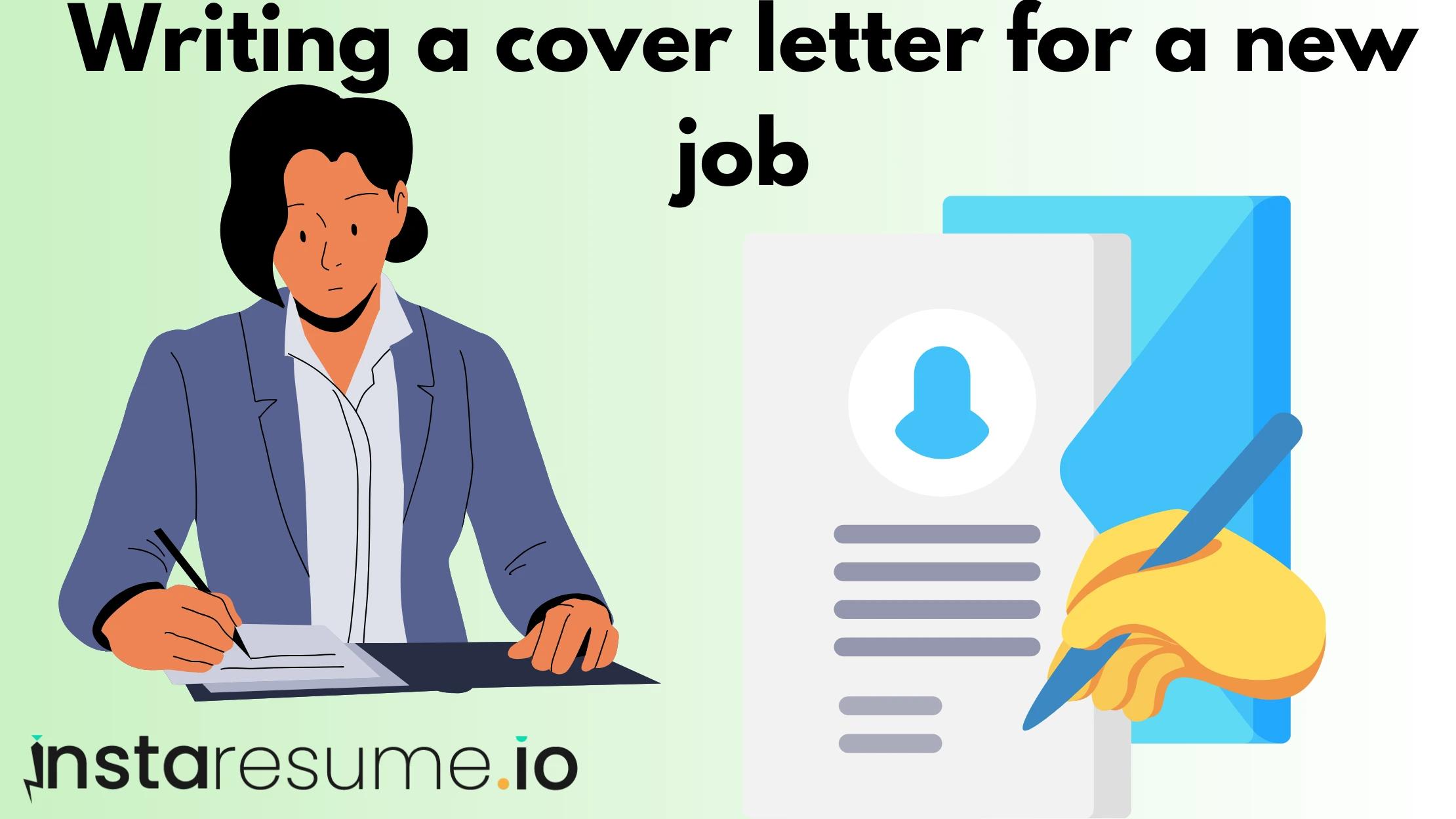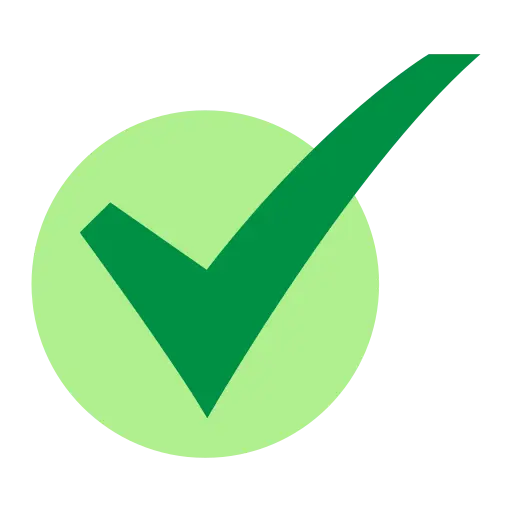Tips To Write a Cover Letter For Your New Job
Trust Score: 4.7
358 reviews

Do you want your cover letter to help you land your dream job? Do you want to make a lasting impression on the recruiter with your application? If yes, you must focus on writing a compelling cover letter. It acts as your first impression that can make or break the possibility of you securing a job. So, whenever you apply for a new job where a cover letter is compulsory, make sure your application stands out.
You may be thinking, What exactly do you need to do to craft a persuasive cover letter? Well, don’t worry; the answer lies in this guide. This article has been specially created to help you write a letter that genuinely reflects your personality and enables you to win the job you are applying for. So, read it till the end, and don’t miss out on anything.
Study The Job Description And Company
Many people start writing a cover letter right after seeing a job announcement. Remember, this is a wrong practice. You must avoid it at all costs. Before jumping into the writing process, research the company and the job you are applying for. Whenever you come to know about a job from any resource, first
 You first read the job descriptions thoroughly and underline critical skills.
You first read the job descriptions thoroughly and underline critical skills. Analyze the company's values, mission, culture, and needs.
Analyze the company's values, mission, culture, and needs. Find out the name of the hiring manager to personalize your cover letter.
Find out the name of the hiring manager to personalize your cover letter.
All these things reflect that you have invested time and are genuinely interested in the job.
Utilize A Professional Cover Letter Format
A cover letter that is neat and professional will do a better job of impressing the recruiter than an untidy one. Well-structured information hints at your professionalism and makes your message more impactful. You must maintain a professional format while writing your cover letter. This is what you need to do for this particular purpose:
 Start with a header containing all your details.
Start with a header containing all your details. Then, it comes to greeting the hiring manager by name.
Then, it comes to greeting the hiring manager by name. After that, the opening line will grab the recruiter's attention.
After that, the opening line will grab the recruiter's attention. Next, write the body paragraphs to showcase your skills and experience.
Next, write the body paragraphs to showcase your skills and experience. Following that, end the cover letter with a concluding paragraph.
Following that, end the cover letter with a concluding paragraph.
Once you have written all the details, don’t forget to add a professional signoff or signature.
Write clearly and professionally.
Recruiters often receive hundreds, if not thousands, of applications for a single job posting. If your cover letter is unclear or complicated to follow, it’s likely to be overlooked. To ensure your message stands out and is easy to understand, prioritize simplicity and clarity in your writing.
Here’s how you can refine your cover letter effectively:
 Use straightforward vocabulary that’s easy to grasp on the first read.
Use straightforward vocabulary that’s easy to grasp on the first read. Keep sentences concise, avoiding overly long or complex structures.
Keep sentences concise, avoiding overly long or complex structures. Write in an active voice to directly engage the recruiter.
Write in an active voice to directly engage the recruiter.
If you find it challenging to enhance the readability and clarity of your cover letter, a paraphrasing tool can be your solution. A free paraphrasing tool allows you to refine your word choice, restructure sentences, and simplify complex ideas, ensuring your cover letter communicates your message clearly and professionally.
Proofread And Edit Carefully
Minor grammatical mistakes can lead to significant confusion. Also, grammar inaccuracies can lower the chances of you being hired. Therefore, review the document and identify any lexical mistakes after finishing writing. While doing so
 Stay vigilant for spelling mistakes and apostrophe issues.
Stay vigilant for spelling mistakes and apostrophe issues. Identify and correct misplaced punctuation.
Identify and correct misplaced punctuation. Spot sentence fragments and make corrections accordingly.
Spot sentence fragments and make corrections accordingly.
Remember, you may not notice sophisticated errors when performing manual checks due to a lack of knowledge of grammar. You can use an advanced grammar checker to ensure you leave no mistakes in the cover letter. The online grammar checker will help you catch basic and advanced grammatical errors within seconds and make your cover letter 100% unique and error-free.
Write A Compelling Introduction
The introduction is the first thing a recruiter notices about your cover letter. It acts as the foundation of the rest of the details. Well-written opening lines encourage the recruiter to read the entire cover letter and see your resume. Therefore, you must focus on making it attention-grabbing. When writing the introduction
 Initiate by clearly mentioning the job title you are applying for.
Initiate by clearly mentioning the job title you are applying for. State the journey where and how you found the job posting.
State the journey where and how you found the job posting. Highlight your top achievements in a few words.
Highlight your top achievements in a few words. Show your enthusiasm for the job role.
Show your enthusiasm for the job role.
These details will instantly catch the hiring manager’s eye, increasing your chances of landing the job.
Focus On the Most Relevant Skills And Experience
When writing body text, don’t stuff it with everything you have done in the past. It can extend the length of a cover letter unnecessarily. Also, with so many details to read, the recruiter must identify the things that are more relevant to current job requirements. Therefore, you should focus on the most appropriate expertise and work experience.
 Mention the skills that are highlighted in the job description.
Mention the skills that are highlighted in the job description. Explain your experience with projects related to the job you are applying for.
Explain your experience with projects related to the job you are applying for. When writing about your achievements, use numbers to make a better impression. You allow the recruiter to assess your capabilities for the vacant position by mentioning the relevant information.
When writing about your achievements, use numbers to make a better impression. You allow the recruiter to assess your capabilities for the vacant position by mentioning the relevant information.
Keep It Brief And To The Point
Note that the cover letter is not a long document; it should reflect your skills and experiences in short. So, don’t try to overexplain things, as it will make your letter longer, which is not suitable effectiveness. The maximum recommended word count for this is about 250–400 words. To achieve this length, you should
 Write a statement in as few words as you can.
Write a statement in as few words as you can. Avoid redundancy in ideas as it increases word count.
Avoid redundancy in ideas as it increases word count. Refrain from mentioning every achievement or skill.
Refrain from mentioning every achievement or skill. Use a single word for an idea instead of a couple of words.
Use a single word for an idea instead of a couple of words.
The more concise your cover letter is, the easier it will be for the hiring manager to read and understand it.
Conclusion
In short, I want to write a job-winning cover letter, invest time, and explore the role and company requirements. Then, align the information per the organization's needs to which you are applying. Keep the format professional and utilize simple language to convey your message professionally yet clearly.
While crafting the body section, write the most relevant skills, achievements, and experiences, but stay concise. Lastly, review the whole text for inaccuracies and eliminate them if found.






